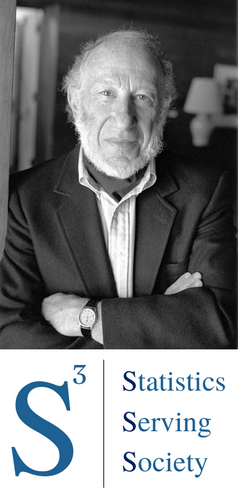[Please Note: This event has already taken place. Please review the News Story for this event to read about what happened.]
Overview
Human trafficking is a crime, and those who engage in it seek to avoid discovery. Therefore, it is difficult to estimate its prevalence. That difficulty is compounded by the fact that sex trafficking is different from labor trafficking, each operative under a distinct business model. This webinar has expert speakers who will describe statistical approaches for estimating prevalence, especially multiple systems estimation, respondent-driven sampling, and economic modeling. The pros and cons of these methods will be discussed.
This will be a three-hour webinar with one 10-minute break. Each speaker will have 30 minutes, with 30 minutes for a panel discussion. All participants are welcome to join breakout groups with each speaker following the panel, then synthesis and next steps afterwards.
Speakers
Zoom Breakout Group Discussions
Participants who join breakout rooms will be visible on camera in Zoom. Please note these will not be recorded, and will not be included in the recording of the forum session. One participant in the group will serve as a note taker. Those interested in volunteering as notetakers in the Zoom breakout rooms can reach out to Megan Glenn at mglenn@niss.org. The document is below to fill out for each breakout room discussion group on zoom.
Each group will discuss the following with each other and the speaker:
- Which methods do you think would work best for forced labor, child labor, sex trafficking, and so forth?
- Can you think of other strategies for estimating prevalence?
- List your group's statistical action items that are needed to better inform public policy, generate reliable evidence, and stimulate research that may mitigate the problem.
** Notetakers: Please click the document below to to fill out the document for the breakout room discussion.
Send to mglenn@niss.org after completed, or upload your file to the online folder here:
Online Folder: Breakout Rooms Notes IOF Combatting Human Trafficking Webinar March 15 2023
Agenda
All times are in Eastern Time Zone:
1:00pm - 1:05pm: NISS / IOF Overview
1:05pm - 1:10pm: Opening Remarks - Forum Chair: David Banks, (Duke University)
1:10pm - 1:40pm: “An Overview of Human Trafficking” - Margaret Henderson, (University of North Carolina), Nancy E. Hagan, (North Carolina Human Trafficking Commission)
1:40pm - 2:10pm: “Respondent-Driven Sampling” - Tyler McCormick, (University of Washington)
2:10pm - 2:20pm: 10-minute break
2:20pm - 2:50pm: "Statistical issues in the study of human trafficking and modern slavery" - Rowland Seymour, (University of Birmingham) and Bernard Silverman, (Oxford University)
2:50pm - 3:10pm: Speaker Panel Discussion
3:10pm - 3:45pm: Zoom Breakout Group Discussions
- Each individual breakout room will require two volunteers: one faciliator and one notetaker. After the breakout group discussion is over, please send the filled-out document to Megan Glenn at mglenn@niss.org.
- Download the Word document to fill out here:
Breakout Rooms Questions IOF Combatting Human Trafficking.docx
- Send to mglenn@niss.org after completed, or upload your file to this folder:
Online Folder: Breakout Rooms Notes IOF Combatting Human Trafficking Webinar March 15 2023
3:45pm - 3:55pm: Synthesis & Future Steps
3:55pm - 4:00pm: Closing Remarks
About the Speakers
Margaret Henderson is a Teaching Associate Professor with the School of Government at the University of North Carolina at Chapel Hill. Her current work primarily includes training professionals engaged in public service, facilitating public meetings and assisting local governments to address human trafficking and elder abuse. In facilitation work, she specializes in the practical implications of managing cross-organizational collaborations.
Nancy Hagan, PhD, is the Coordinator of Training and Technical Assistance for the North Carolina Human Trafficking Commission, having previously served as Senior Human Trafficking Analyst with Project No Rest, a grant funded anti-human trafficking initiative based at the UNC-CH School of Social Work. Nancy developed expertise in anti-trafficking through twenty years of leadership in community-based efforts that allied with farmworkers, immigrants and rural residents of an underserved area of North Carolina.
Nancy earned an undergraduate degree in human development and education from Connecticut College, a Master’s in counseling and consulting psychology from Harvard University, and a Doctorate in adult education and human development from Cornell University. She serves on boards at the local, state and national level, and has received a number of recognitions for her work with underserved communities .
Tyler McCormick is an Associate Professor in the Statistics and Sociology Department at University of Washington. His research has been devoted to two themes: how to develop statistical methods to learn about social network structure using sampled or partially observed network data; and how to leverage social structure in social networks to access populations that are excluded from the sampling frame of most surveys (the homeless, or individuals living with HIV, for example). McCormick’s work on statistical methods have focused primarily on “How many X’s do you know?’’ data. He has published papers on estimating respondents’ degrees, the population degree distribution, and levels of overdispersion (excess variation in the data due to social structure). McCormick’s most recent work in this area is a new class of statistical models based on latent space models proposed in the complete network literature. McCormick has also worked extensively on data collection issues for these data, suggesting strategies for more efficient survey design and proposing statistical adjustments for common forms of respondent error. McCormick’s work on hard-to-reach populations proposes network-based estimates for the demographic profiles of these populations. This project also let to survey design recommendations for future data collection. He has published on these topics in the Journal of the American Statistical Association and the American Journal of Sociology.
Rowland Seymour is Assistant Professor of Mathematics in the University of Birmingham. His research interests are in computational statistics and Bayesian nonparametrics. Rowland has developed models for a wide range of applications including human rights abuses and outbreaks of infectious diseases. Before taking up his current role, he was a Senior Research Fellow at the University of Nottingham’s Rights Lab, where he led the Prevalence and Computation group.
Sir Bernard Silverman is a statistician whose research has ranged widely across theoretical and practical aspects of statistics. He is recognised as a pioneer of computational statistics, researching the ways that computing power has changed our ability to collect, analyse, understand and utilise data. He has published extensively in this field, covering aspects from the fundamental mathematical properties of new methods to computer packages for their implementation. He has collaborated in many fields in the physical, life and social sciences, and with various areas of industry and government. See Full Bio
Organizing Committee
David Banks, (Duke University)
Daniel Manrique-Vallier, (Indiana University)
Megan Price, (Human Rights Data Analysis Group)
About the Ingram Olkin Forum Series
 Ingram Olkin (S3) Forums are a series of forums to honor the memory of Professor Ingram Olkin presented by the NISS Statistics Serving Society (S3).
Ingram Olkin (S3) Forums are a series of forums to honor the memory of Professor Ingram Olkin presented by the NISS Statistics Serving Society (S3).
Each forum focuses on a current societal issue that might benefit from new or renewed attention from the statistical community. The S3 Forums aim to bring the latest innovations in statistical methodology and data science into new research and public policy collaborations, working to accelerate the development of innovative approaches that impact societal problems. As the Forum will be the first time a particular group of experts will be gathered together to consider an issue, new energy and synergy is expected to produce a flurry of new ideas and approaches.
Visit the IOF page for more information: https://www.niss.org/ingram-olkin-forums
Event Type
- NISS Hosted
- NISS Sponsored


